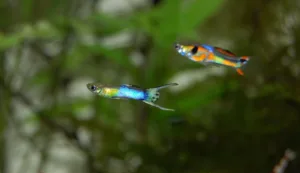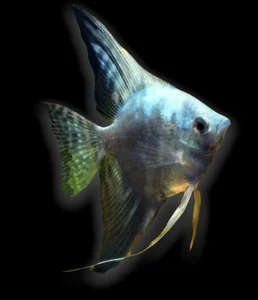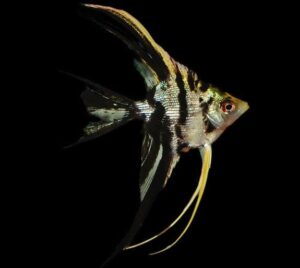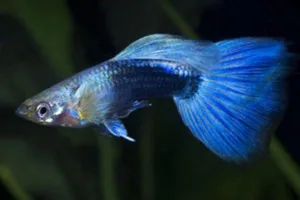When it comes to the world of aquarium keeping, guppies often steal the spotlight for their vibrant colors and charming personalities. These small, freshwater fish are a popular choice for both novice and experienced aquarists. One of the intriguing aspects of guppies is their social behavior, and the question that frequently arises is, “Are guppies schooling fish?” In this article, we will dive into the world of guppies and explore the truth behind their schooling tendencies.
Understanding Guppy Behavior: A Social Aquatic World
Guppies as Social Creatures
Guppies, scientifically known as Poecilia reticulata, are indeed social creatures. They are well-known for their gregarious nature and thrive in the company of their own kind. While guppies don’t form large, coordinated schools like some other species, they do exhibit a social hierarchy and interact with their fellow tankmates.
Schooling vs. Shoaling
To clarify the terminology, it’s essential to differentiate between schooling and shoaling behavior. Schooling refers to a coordinated, synchronized swimming pattern seen in species like neon tetras, where fish move as a single unit. Guppies, on the other hand, typically shoal, meaning they group together in a less structured manner.
The Shoaling Habits of Guppies: Strength in Numbers
Shoaling Benefits
Guppies tend to shoal for various reasons. One of the primary benefits of shoaling is safety. By grouping together, guppies can minimize their individual risk of predation. They are more vigilant as a group, increasing their chances of detecting potential threats. Additionally, shoaling allows guppies to share information about food sources and navigate their environment more efficiently.
Social Hierarchy
Within a group of guppies, a social hierarchy often emerges. Dominant individuals may establish themselves and command respect from their shoal mates. Submissive guppies may follow the lead of the dominant ones, creating a pecking order that helps maintain order and reduce intra-group aggression.
Ideal Tank Conditions for Guppies
The Importance of Tank Size
To encourage guppy shoaling behavior, it’s crucial to provide them with an adequately sized tank. Guppies are more likely to exhibit social behavior when they have enough space to swim and interact comfortably. For a small group of guppies, a tank with a capacity of 10 gallons is recommended, but larger tanks are even better.
Decor and Hiding Spots
Adding appropriate tank decorations and hiding spots can help create an environment conducive to guppy shoaling. Plants, driftwood, and caves can offer shelter and resting places for your guppies. These additions mimic their natural habitat, making them feel more secure and comfortable.
Water Quality and Temperature
Guppies are tropical fish, and maintaining the right water parameters is essential for their well-being and social interactions. Keep the water temperature between 72°F and 82°F (22°C to 28°C) and maintain good water quality with regular water changes and filtration.
Tank Mates and Guppy Compatibility
Compatible Tank Mates
Guppies are generally peaceful fish and can coexist with a variety of tank mates. Species such as mollies, platies, and other peaceful community fish are good companions for guppies. Avoid pairing them with aggressive or fin-nipping species, as this can lead to stress and harm their social dynamics.
Guppy-Only Tanks
If you want to observe guppy shoaling behavior to its fullest, consider having a guppy-only tank. This ensures that guppies can engage in their natural social interactions without the presence of other fish that might disrupt their shoaling patterns.
Feeding Guppies and Social Dynamics
Feeding Time
Feeding time is an excellent opportunity to observe guppy social dynamics. When you provide food, you’ll notice guppies gathering near the surface, eagerly waiting for their meal. This communal feeding behavior showcases their social nature as they compete for food and share information about the presence of nourishment.
Balanced Diet
To support their social interactions and overall health, it’s essential to provide guppies with a balanced diet. High-quality flake or pellet food, supplemented with occasional treats like brine shrimp or daphnia, will keep them active and vibrant.
Breeding and Guppy Shoaling
Breeding Pairs
Guppy breeding can be a fascinating aspect of their social behavior. When a male guppy displays courtship behavior to a female, it often attracts the attention of other guppies in the vicinity. This can lead to a temporary disruption of shoaling as the male and female pair up for breeding.
Guppy Fry and Shoaling
Once the female guppy gives birth to fry, the shoaling dynamics may change. The presence of fry can stimulate curiosity and interest among the adult guppies. They may gather around the newborns, displaying social behavior as they inspect and interact with the fry.
The Bottom Line: Guppies, Social but Not Schooling
In conclusion, guppies are undeniably social fish, but they do not exhibit the classic schooling behavior seen in certain other species like tetras. Instead, guppies tend to shoal, grouping together for safety, social interaction, and enhanced efficiency in finding food and navigating their environment.
To foster guppy shoaling behavior in your aquarium, provide an appropriately sized tank, suitable tank decor, and maintain ideal water conditions. Choose compatible tank mates and offer a balanced diet to support their social interactions. Guppy breeding can add an extra layer of social complexity to your tank.
In the world of aquarium keeping, guppies continue to captivate hobbyists with their colorful appearance and engaging social behavior. By understanding their natural tendencies and creating a well-suited environment, you can enjoy the lively and social nature of these remarkable freshwater fish. So, while guppies may not school like some other species, their unique brand of social interaction is a spectacle in itself, enriching your aquarium experience.











